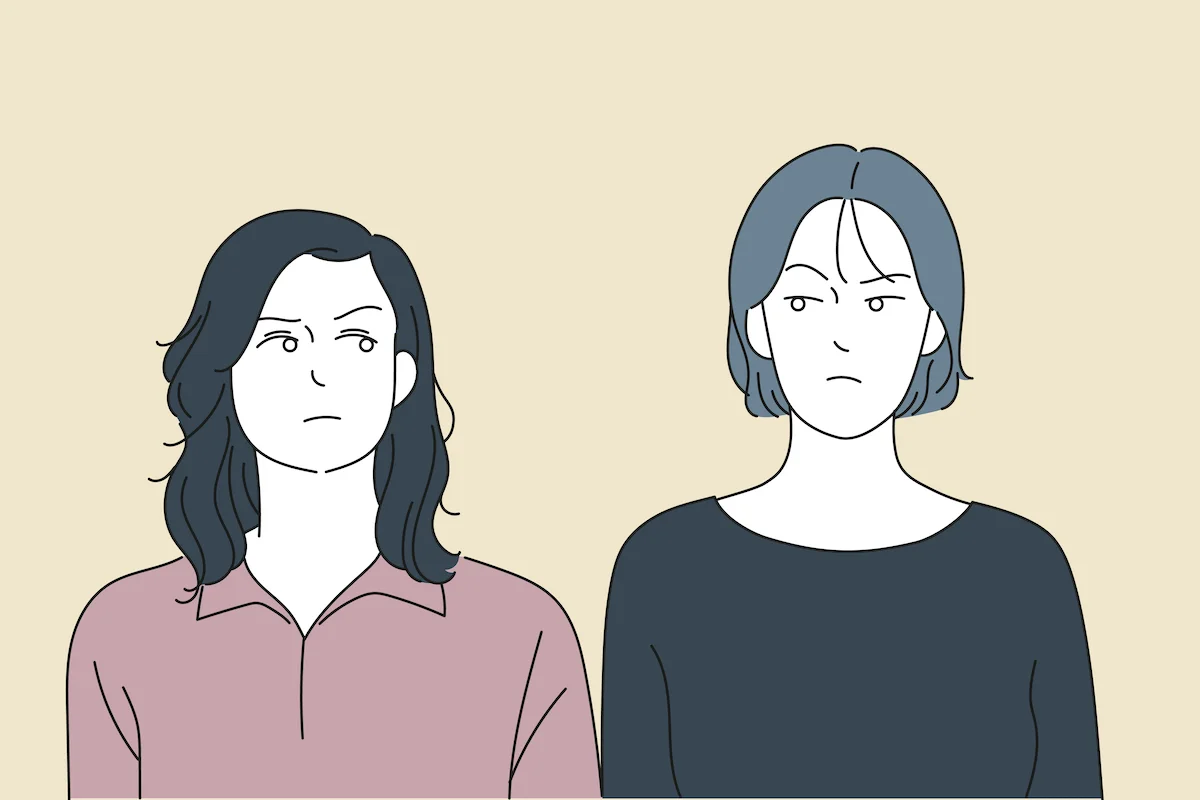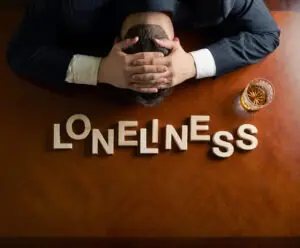Contents
What Is Jealousy?
 Jealousy is a negative emotion. This occurs when a person feels threatened by the perceived value of someone or something to another person. You can feel this in all kinds of situations, from sibling rivalries to romantic jealousy and even team conflicts.
Jealousy is a negative emotion. This occurs when a person feels threatened by the perceived value of someone or something to another person. You can feel this in all kinds of situations, from sibling rivalries to romantic jealousy and even team conflicts.
Jealousy is generally associated with feelings of insecurity, inadequacy, and fear around loss or abandonment. This feeling usually manifests itself in an overt or passive-aggressive way and can even cause a person to lash out at the object of their jealousy.
Jealousy is sometimes used as fuel for performance appreciation. When someone feels threatened by another’s success, they will try harder to prove themselves. This can be through good work ethics and results.
Types of Jealousy
These are some types of jealousy:
Situational Jealousy
This type of jealousy can be the result of a person feeling insecure about themselves, their abilities, or whether they are “good enough” for someone else. Situational Jealousy is something that most people experience at some point in life. But the point is that it doesn’t have to define you. If situational jealousy becomes too much and starts to impact your everyday activities then there may need to be an intervention.
Romantic Jealousy
 This type of jealousy occurs when one partner feels threatened by another romantic interest. It can be either real or imagined (reading more into text messages than necessary). This jealousy typically only gets worse if not dealt with properly. That is why it’s important to understand how this works before getting yourself caught up in the unnecessary drama. This is why it’s important to talk with your partner about any worries you may have as soon as possible.
This type of jealousy occurs when one partner feels threatened by another romantic interest. It can be either real or imagined (reading more into text messages than necessary). This jealousy typically only gets worse if not dealt with properly. That is why it’s important to understand how this works before getting yourself caught up in the unnecessary drama. This is why it’s important to talk with your partner about any worries you may have as soon as possible.
Creative Jealousy
This is when a person feels like their creation, idea or work has been stolen by another person. They also feel the need to seek revenge in order not to “lose”. This can be very common especially among artists who go through many creative blocks and moments of self-doubt. Creative jealousy usually only occurs if somebody else is already catching attention for similar works that it starts making them question themselves more than usual. This type of jealousy is also related to another type of jealousy.
Envy Jealousy
 When someone becomes envious of what others have achieved this can lead to feelings of betrayal such as, bitterness and anger towards those people. Envy Jealousy can also mean that the person envious experiences feelings of being left behind due to others’ success, this is because envy jealousy often leads to comparisons that are never constructive or positive.
When someone becomes envious of what others have achieved this can lead to feelings of betrayal such as, bitterness and anger towards those people. Envy Jealousy can also mean that the person envious experiences feelings of being left behind due to others’ success, this is because envy jealousy often leads to comparisons that are never constructive or positive.
Pathological Jealousy
This is a type of jealousy that can be described as an obsession, feelings that are intrusive and cause irrational fear. Pathological Jealousy occurs when people have been the victim of gaslighting or smear campaigns from their partner which leads them to become paranoid. It usually happens over time so it may not always be noticeable straight away but if you notice any signs then please reach out for help before things escalate!
Sexual Jealousy
 This is when a person feels suspicious or threatened due to their partner’s sexual activities, either real or imagined. This is usually caused by insecurities and feelings of inadequacy which can be brought about by situational jealousy.
This is when a person feels suspicious or threatened due to their partner’s sexual activities, either real or imagined. This is usually caused by insecurities and feelings of inadequacy which can be brought about by situational jealousy.
Attachment Jealousy
This occurs when a person gets insecure over their partner’s emotional intimacy with others including family members, friends, co-workers, etc. Attachment Jealousy can cause people to feel inadequate because they believe that the other person’s attention should only belong to them so if it doesn’t then this may lead to further types of jealousy.
Sibling Rivalry
 When someone gets jealous over competitive behaviors they witness between themselves and others including siblings, friends; co-workers, etc.; especially in regards to achievement or success. Sibling rivalry occurs more frequently among children but can also be present among adults. If left unchecked sibling rivalry can lead to feelings of inadequacy, insecurity, and betrayal which are all types of jealousy.
When someone gets jealous over competitive behaviors they witness between themselves and others including siblings, friends; co-workers, etc.; especially in regards to achievement or success. Sibling rivalry occurs more frequently among children but can also be present among adults. If left unchecked sibling rivalry can lead to feelings of inadequacy, insecurity, and betrayal which are all types of jealousy.
Workplace Jealousy
When someone feels threatened over another colleague’s success, achievements, and recognition within the workplace such as promotions.
Stages of Jealousy

These are some of the most common stages of jealousy that occur within each type.
Identification of Feeling
The person may initially become aware of being jealous through a bodily sensation such as an increase in heart rate. In this stage, a person is aware of the feelings but not yet their cause.
Realization
The individual with jealousy may begin to suspect that they are jealous and will try testing whether this is the case by provoking the suspected source. If it turns out, upon closer inspection or provocation, that there’s no threat. Often people feel relief at knowing why they were feeling bad in themselves. This is even if still upset about what happened. But sometimes when evidence comes up against initial fears it can make things worse. This is especially if someone has already started acting on those fears. This stage can be very painful for any relationship. It is because all actions taken from here on forward are based on assumptions rather than facts.
Rationalization/Cognitive Distortions
When someone is jealous they may start to think irrationally in a number of ways, such as believing that their partner’s actions mean something more than what has actually happened. This can lead to the next stage…
Actualization/Behavioral Outcomes
In this stage, one or both partners will take action based on previous feelings and assumptions. These actions could be anything from talking about it calmly to physical violence. It depends on how far gone each person is when putting thoughts into action. In most cases however people don’t realize that by taking things further jealousy only becomes stronger and grows out of control.
Escalation
Jealousy escalates if left unchecked because a) one or both partners become fixated on their assumptions and b) they continue to take action based on those incorrect assumptions. This will only lead them further down a negative path because as we mentioned earlier, actions are taken from here onward are irrational and unsupported by facts which means that not everyone will handle it the same way.
Symptoms of Jealousy

Jealousy has many symptoms, including:
- Obsessive thoughts about the relationship between yourself and another person.
- Secretly comparing yourself to the other person or trying to one-up them in some way (examples include saying you make more money than they do or having a better car).
- Feeling of superiority.
- Believing you are entitled to something that belongs to someone else (examples include a partner, money, or status)
- Feeling threatened by your own insecurities.
- Feeling unworthy of something you feel entitled to (examples include a job, relationship, or status)
- Not trusting others.
- Feeling unworthy of love and affection from others.
- Inability to be happy for someone else’s accomplishments or good fortune, even if you know it is the person’s right to have those things as much as yours (examples include a raise at work, promotion on an assignment).
- Using anger and resentment to motivate yourself after another person does something that makes you feel jealous.
Causes of Jealousy

These are some of the causes of jealousy:
Anxiety
Anxiety sometimes manifests itself in form of jealousy especially when one feels out of control.
The fear that someone may take your place is a common feeling among people who are constantly anxious. These feelings can lead to irrational behavior if not addressed directly. A person with anxiety disorders may also feel inferior or unattractive compared to others. This could also be the cause for some jealous behaviors in relationships.
Low Self-Esteem
When you have low self-esteem it often causes insecurity issues within yourself leading to an inability to trust another person’s intentions towards you because deep down inside they know their own shortcomings better than anyone else does. This can create an environment where mistrusting thoughts are brought into the relationship on both sides causing problems for everyone involved as well as jealousy issues.
Trust Issues
When people don’t know how to handle relationships, they may completely close down and not allow anyone else into their lives at all. This could be because of past experiences that have made them afraid or mistrustful but the more likely problem is that they are still stuck in old patterns of behavior based on fear instead of moving forward with an open mind towards new possibilities which can sometimes lead to feelings of resentment when someone does break through those defenses leading to irrational jealous behaviors.
Unconscious Fears
Jealousy is often rooted in unconscious fears that will manifest themselves in form of jealousy. It’s not unusual for someone to feel jealous about something they are afraid of without realizing it, especially when the fear remains unacknowledged or unresolved because the feelings come up automatically and cause irrational behavior out of proportion with what triggered them. Unconscious fears can be brought on by past traumas which have yet to be healed leaving an emotional wound open inside you which makes other people’s success look threatening rather than inspiring leading to negative effects within yourself as well as others if left untreated.
Benefits of Jealousy

These are some of the benefits of jealousy:
Identify Relationship Security Issues
If you feel jealous when someone else gets close to your partner it could mean that the two of you need to communicate more often about where exactly the relationship is headed. It’s always better for both people involved in a relationship whether dating or married, to share their feelings with each other so they may know how much space to give one another without feeling threatened by outside forces which can cause problems between them leading to resentment building up over time creating an emotional drain on relationships if not resolved quickly enough.
Positive Motivator For Self-Improvement
Feeling insecure because your love interest starts spending less time with you? This might be an opportunity for you to do something different in your own life which can bring more positive results! This also gives you the chance to take their advice when they offer it because this might be exactly what you need to improve yourself.
Teaches You To Be More Independent
If things don’t work out between two people then there’s no need to feel bad! It simply means that both of these individuals were not meant for each other since jealousy can be an indicator of relationship insecurity issues which might also affect self-esteem levels causing low confidence problems. This is when one person will try everything within their power just so they remain in control while the other tries equally hard to get back what was once theirs but this isn’t something worth fighting over if feelings aren’t mutual! Being free of this kind of toxic relationship is a blessing in disguise so you need to learn how to feel good about yourself again and remember that there’s still plenty more fish out there making it easier for someone else to catch your eye.
Negative Effects of Jealousy
Jealousy has some negative effects too:
Hampers Relationships
 Uncertainty, fear, and feelings of inadequacy can all contribute to self-esteem problems which might be the reason why you’re feeling insecure in your relationship. This is a sign that it’s time for both partners involved to sit down and have an honest conversation about what they really want from each other instead of blaming everything on someone else!
Uncertainty, fear, and feelings of inadequacy can all contribute to self-esteem problems which might be the reason why you’re feeling insecure in your relationship. This is a sign that it’s time for both partners involved to sit down and have an honest conversation about what they really want from each other instead of blaming everything on someone else!
Makes You Feel Very Lonely
 Spending too much time thinking about something that makes no sense at all means that one or more people are obsessing over things they don’t actually know for sure just based on assumptions leading them to feel bad about themselves as well as their decisions with relationships being affected adversely because jealousy has made its way into the mix! It takes two hands to clap so stop trying to control the situation and take a deep breath before you make any drastic decisions without thinking things through because this could backfire big time.
Spending too much time thinking about something that makes no sense at all means that one or more people are obsessing over things they don’t actually know for sure just based on assumptions leading them to feel bad about themselves as well as their decisions with relationships being affected adversely because jealousy has made its way into the mix! It takes two hands to clap so stop trying to control the situation and take a deep breath before you make any drastic decisions without thinking things through because this could backfire big time.
Cripples Your Self-Confidence

If your relationship is already deteriorating then it’s not too late for both people involved in order to come up with effective solutions which can help bring about positive changes! This might be something worth fighting for if feelings are still mutual so open lines of communication between everyone who cares about each other, no matter how bad things seem at the moment by simply talking to one another instead of making assumptions leading them down a dead-end road where nothing will change unless they do something different right now in order to improve their lives together.
Damages Your Self-Esteem
 Self-esteem is a fragile thing so you need to feel good about yourself before anyone else can. It is because that kind of energy radiates from within and affects everything in your life. If your confidence levels are low this will affect relationships as well as professional matters. These are where things might not turn out the way you expect them to which could be a result of jealousy creeping up on everyone involved without their knowledge. This is because these kinds of feelings don’t always appear right away. It is unless they were already there for quite some time now by giving people enough space rather than smothering each other.
Self-esteem is a fragile thing so you need to feel good about yourself before anyone else can. It is because that kind of energy radiates from within and affects everything in your life. If your confidence levels are low this will affect relationships as well as professional matters. These are where things might not turn out the way you expect them to which could be a result of jealousy creeping up on everyone involved without their knowledge. This is because these kinds of feelings don’t always appear right away. It is unless they were already there for quite some time now by giving people enough space rather than smothering each other.
How To Cop-Up With Jealousy?

Taking a moment to recognize the feelings and why they have arisen will help you deal with them more objectively instead of trying to suppress them which can make things worse. These are some of the tips to cope-up with jealousy:
Talk To Someone
If you are feeling jealous or anxious about something, talk to someone close to you. Don’t bottle up your feelings because this will only lead to more problems later. It makes it harder for both of you who are in that situation. Communication is key when trying to solve a problem. This is especially if emotions are running high which can make things difficult but not impossible with the right mindset towards resolving issues together. You need not be at each other’s throats leading to resentment building up.
Take Time Out
If talking doesn’t seem like an option then step back from the situation. Take some time out before reacting irrationally by allowing yourself space away from what triggers these negative thoughts. This is so that they don’t get any bigger than they already are preventing them from growing into something even worse. This could lead to more damage or hurt feelings.
Focus On Yourself
Don’t take anything personally when someone else succeeds. This is because, in the end, this has nothing to do with you but only them. Instead of trying to compete or compare yourself focus on your own accomplishments and progress. This is so that you may feel better about yourself seeing how far you have come. This is rather than thinking about what other people might not know. This can cause jealousy issues within relationships if left untreated.
How You Can Help Someone With Jealousy
If you find yourself in this situation then there’s nothing wrong with seeking help. Most people don’t mean for things to escalate like this so if your partner is willing to seek support. Listen carefully and offer whatever assistance you can provide. It doesn’t involve taking sides. If your partner isn’t ready to reach out for help yet but wants some space; respect that and allow them to have the freedom you both deserve.
People with low self-esteem are often afraid of being alone. But it’s important for them to learn how to be kinder towards themselves. This is by changing their own behavior according to what they want. It is instead of relying on someone else’s validation that will only cause problems in the long run. This takes time so you need patience as well as a willingness from your partner that this is something worth fighting for because jealousy can destroy relationships if left untreated.
Sometimes people feel threatened because they think another person wants what belongs exclusively just to them, love interests included. It could also be possible that one or more partners aren’t sure where exactly the relationship stands between everyone involved. This results in insecure assumptions about things they don’t know for sure. This further results in jealousy issues.
Conclusion
Jealousy is a complex emotion that can be difficult to fully understand. It’s important for people who experience jealousy, as well as those around them, to have an understanding of the root causes. You should also know the effects of this feeling in order to control it. In addition, there are steps you can take if your partner experiences feelings of jealousy towards you or another person.
If you are looking for affordable Online Counseling MantraCare can help: Book a trial therapy session


